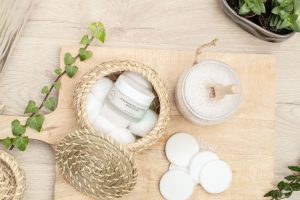
For years, personal care and cosmetics companies have produced advertisements that highlight the need to introduce skincare regimens that may aid in the curbing of probable topical aging. By using their products or services, you may look younger, feel healthier, and reduce the weathering that accompanies the passage of time. L’Oreal, however, is one company that must answer to the complaints reported by customers who claim that two collagen products do not adequately help the anti-aging process of wrinkle care.
Originally filed in August 2021, in U.S. District Court, Southern District of New York, the case has reached class action status. The plaintiffs, Rocio Lopez and Rachel Lumbra, have accused L’Oreal of deceiving consumers into believing that the collagen molecules within the Collagen Moisture Filler Day/Night Cream and the Fragrance-Free Collagen Moisture Filler Daily Moisturizer smooth wrinkles. According to their accusations, collagen molecules that are applied to the skin are too large to be absorbed by the topical layer. A judge has agreed that a reasonable customer would believe that, based on the products’ labels, that a moisturizer named ‘Collagen Moisture Filler’ may contain elements that could offer beneficial cosmetic effects associated with the collagen molecule.
This rationale led US District Court Judge Andrew Carter to deny L’Oreal’s attempt to have the case dismissed. The company has challenged the claim that it knowingly defrauded customers into purchasing products that were perceived as overpriced, yet ineffective. Instead, L’Oreal contends that it never promised that its products containing collagen would impact the skin or incite collagen production. Despite the labels marketing the result of skin cushion restoration, according to L’Oreal’s argument, a reasonable consumer should not expect the drastic result of collagen production. The class action does not disclose a specific monetary amount, however, nationwide customers of L’Oreal products are seeking damages.

